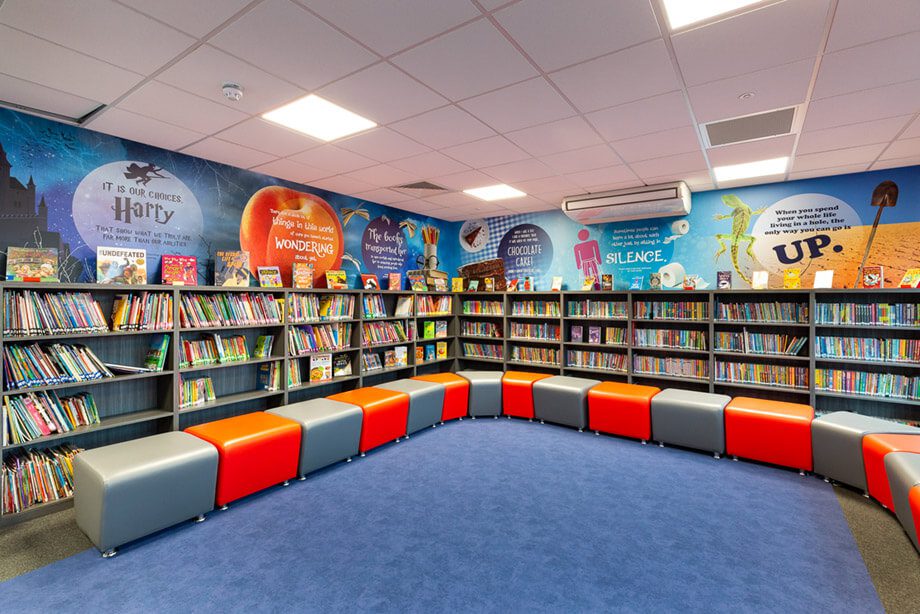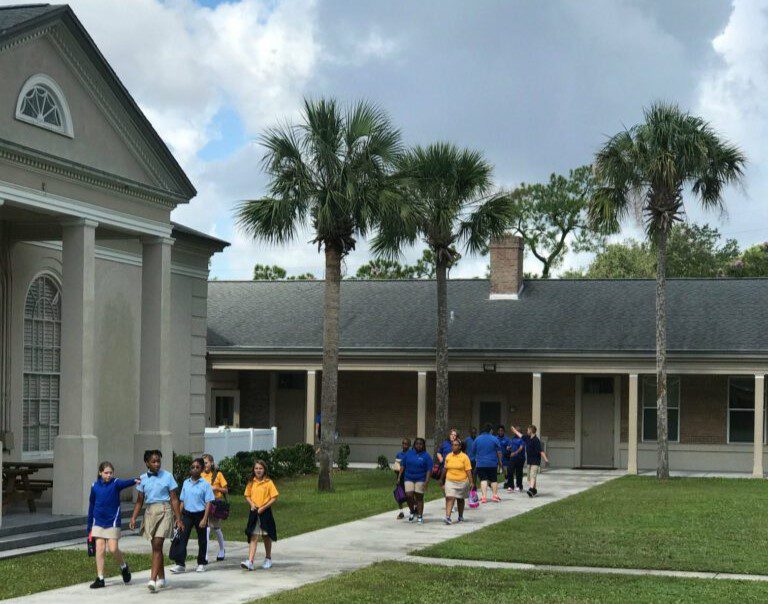Academic Excellence in Christian Private Schools

Private education has become an increasingly popular alternative to public schooling in contemporary society. Within this context, Christian private schools have emerged as a distinct and influential sector of the educational landscape.
These institutions, founded on the principles of Christianity, strive to provide students with a rigorous academic education and a strong moral and spiritual foundation.
This article examines the concept of academic excellence in Christian private schools, focusing on the benefits of faith-based education, the integration of Christian values into the curriculum, and the holistic approach to education.
It explores the crucial role of parental involvement in fostering academic achievement in these schools.
By understanding Christian private schools’ unique characteristics and advantages, parents and students can make informed decisions when choosing an educational institution that aligns with their values and aspirations.
Key Takeaways
- Academic excellence is fostered in Christian private schools through a well-rounded education that promotes intellectual growth and critical thinking skills.
- Integrating religious values into academic offerings plays a significant role in students’ spiritual growth and overall development.

- Parental involvement is crucial in Christian private schools, as it contributes to the educational experience and helps shape the school culture.
- Extracurricular activities in Christian private schools provide holistic development opportunities, fostering teamwork, leadership, and personal growth.
The Benefits of a Faith-Based Education

Christian private schools provide an environment that fosters spiritual growth and character development. Students are taught to integrate their faith into every aspect of their lives, helping them develop a deep and personal relationship with God. Through daily prayers, bible studies, and religious ceremonies, students learn the importance of living a life guided by moral principles.
These schools emphasize the importance of community and instill in students a sense of responsibility towards others. Students develop empathy and compassion for those in need by participating in service projects and outreach activities.
This holistic approach to education prepares students to become well-rounded individuals who are not only academically competent but also committed to positively impacting their communities.
Rigorous Academic Programs
Rigorous academic programs in these institutions foster an environment of intellectual growth and challenge, where students are encouraged to reach their full potential. Christian private schools recognize the importance of preparing students for college admissions and future success.
They offer a comprehensive curriculum emphasizing core subjects such as mathematics, science, English, and social studies, ensuring students are well-rounded and equipped with the necessary skills for higher education.
These schools often provide opportunities for advanced coursework, allowing students to delve deeper into their areas of interest and demonstrate their academic abilities.
To further support student achievement, these institutions often incorporate standardized testing to assess student progress and ensure that they meet rigorous academic educational standards.
Integration of Christian Values

College and Career Readiness
To prepare students for their future endeavors, these educational institutions strongly emphasize equipping them with the necessary skills and knowledge to excel in college and career settings. This focus on college and career readiness is achieved through a variety of methods:

- Skill Development: Christian private schools prioritize the development of critical thinking, problem-solving, and communication skills. These skills are essential for success in higher education and professional settings.
- Practical Application: Students can apply their knowledge and skills in real-world scenarios. This hands-on approach allows them to gain practical experience and prepares them for the challenges they will face in college and their future careers.
- Specialized Programs: Many Christian private schools offer specialized programs focusing on specific career paths or areas of interest. These programs provide students with in-depth knowledge and training in their chosen field, giving them a competitive edge in college and the workforce.
- College Preparation: These schools provide comprehensive college counseling services, helping students navigate the college application process and identify the best-fit schools for their academic and career goals.
Holistic Approach to Education
A holistic approach to education encompasses the physical, emotional, and spiritual well-being of students, in addition to their academic growth. Christian private schools recognize the importance of nurturing the whole child and prioritize student well-being and character development alongside academic excellence.
Schools often implement programs and initiatives that promote student well-being to achieve this holistic approach. These include physical education classes, sports teams, and extracurricular activities encouraging physical fitness and healthy lifestyles. Schools may offer counseling services and support groups to address students’ emotional needs and provide guidance for personal growth.
Spiritual development is also a key aspect of holistic education. Christian private schools often incorporate religious teachings and values into their curriculum and provide opportunities for students to engage in worship, prayer, and community service. This helps students develop a strong moral compass and a sense of purpose beyond the academic achievements of Christian private schools.
Enroll Now
Parental Involvement

Choosing the Right Christian Private School
When choosing the right Christian private school, it is important to research its mission and values to ensure they align with your beliefs and priorities.
Considering the school’s academic offerings will help determine if they can provide the education and resources necessary for your child’s academic growth.
Evaluating the faith-based programs and activities offered by the school will give insight into the level of spiritual development and community involvement your child will experience.
Researching School Mission and Values
Researching school mission and values allows individuals to understand the core principles that shape academic excellence and spiritual development within Christian private schools, evoking a sense of appreciation for the rich educational experience.
One can evaluate how these principles align with personal beliefs and aspirations by delving into the school’s mission and values. Understanding the school community’s mission and values is essential in determining whether the school’s educational philosophy resonates with one’s values and goals.
Researching the extracurricular activities offered by the school can provide insight into the holistic development opportunities available to students. Extracurricular activities contribute to a well-rounded education by fostering teamwork, leadership, and personal growth.
Considering Academic Offerings
These educational institutions’ curriculum and course offerings are designed to provide students with a well-rounded education that fosters intellectual growth and critical thinking skills. The academic curriculum is carefully structured to ensure that students receive a comprehensive education encompassing various subjects such as mathematics, science, literature, history, and the arts.
In addition to the core academic subjects, these schools often offer specialized courses catering to students’ interests and talents. This allows students to explore and develop their passions, whether it be in music, sports, or technology.
Extracurricular activities are also integral to these schools, providing students with opportunities to engage in sports, clubs, community service, and leadership programs. These activities enhance students’ academic experience and promote personal growth and character development.
Evaluating Faith-Based Programs and Activities
One cannot overlook the significance of assessing the incorporation of religious principles and practices into these faith-based institutions’ educational programs and extracurricular activities. Evaluating the effectiveness of faith-based programs and activities is essential in measuring their impact on students’ spiritual growth and academic development.
To effectively evaluate these programs, several factors should be considered:
- Alignment With Religious Principles: The extent to which the programs and activities align with the school’s religious values and teachings should be assessed. This includes examining the curriculum and instructional materials and integrating faith principles into various subjects.
- Engagement And Participation: The level of student engagement and participation in faith-based programs and activities can be indicators of their effectiveness. This can be measured through surveys, interviews, and observations.
- Impact On Character Development: Faith-based programs should also be evaluated based on their impact on students’ character development, moral values, and ethical behavior. This can be assessed through self-evaluation, peer evaluations, and feedback from parents and teachers.\
